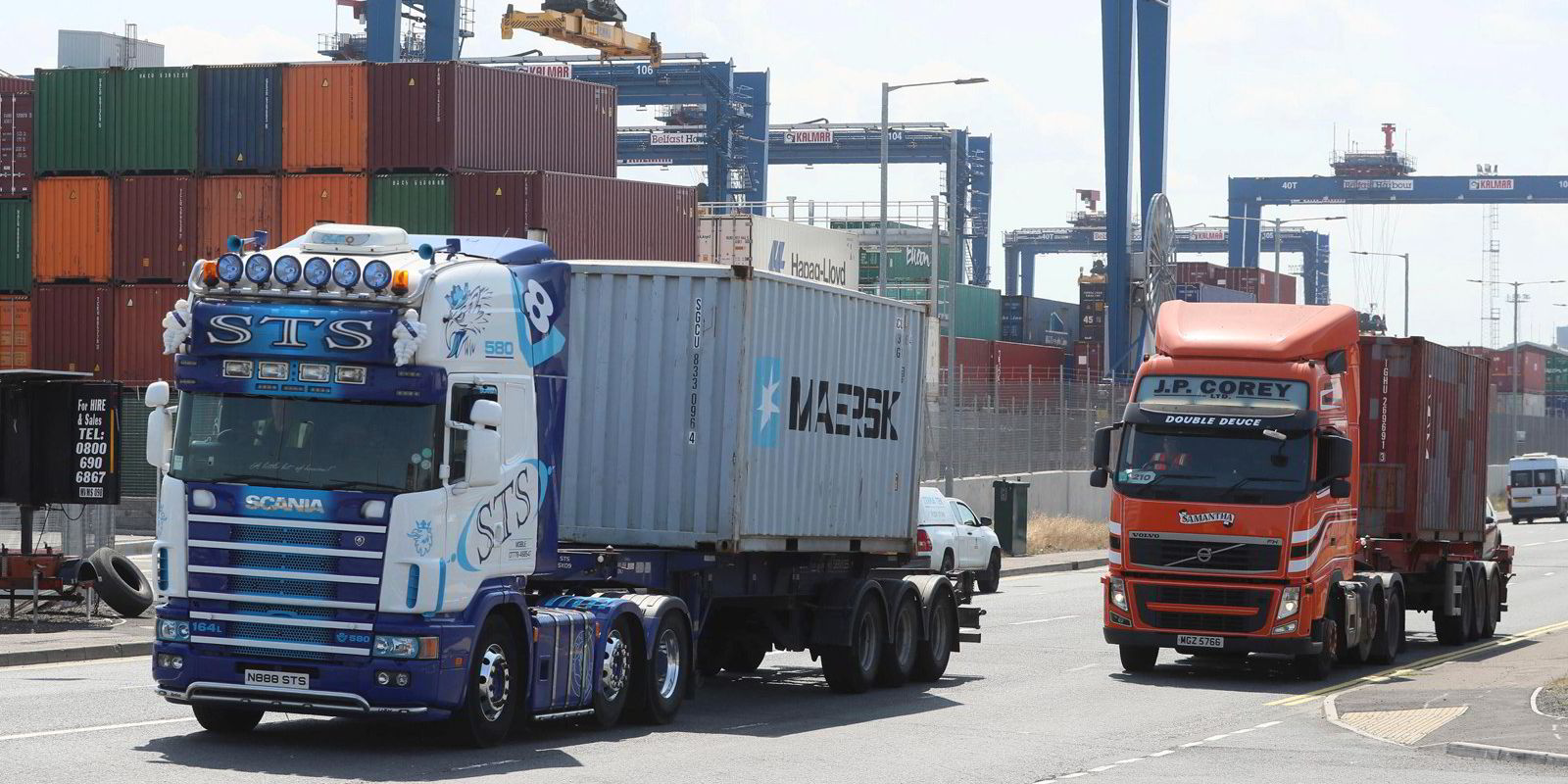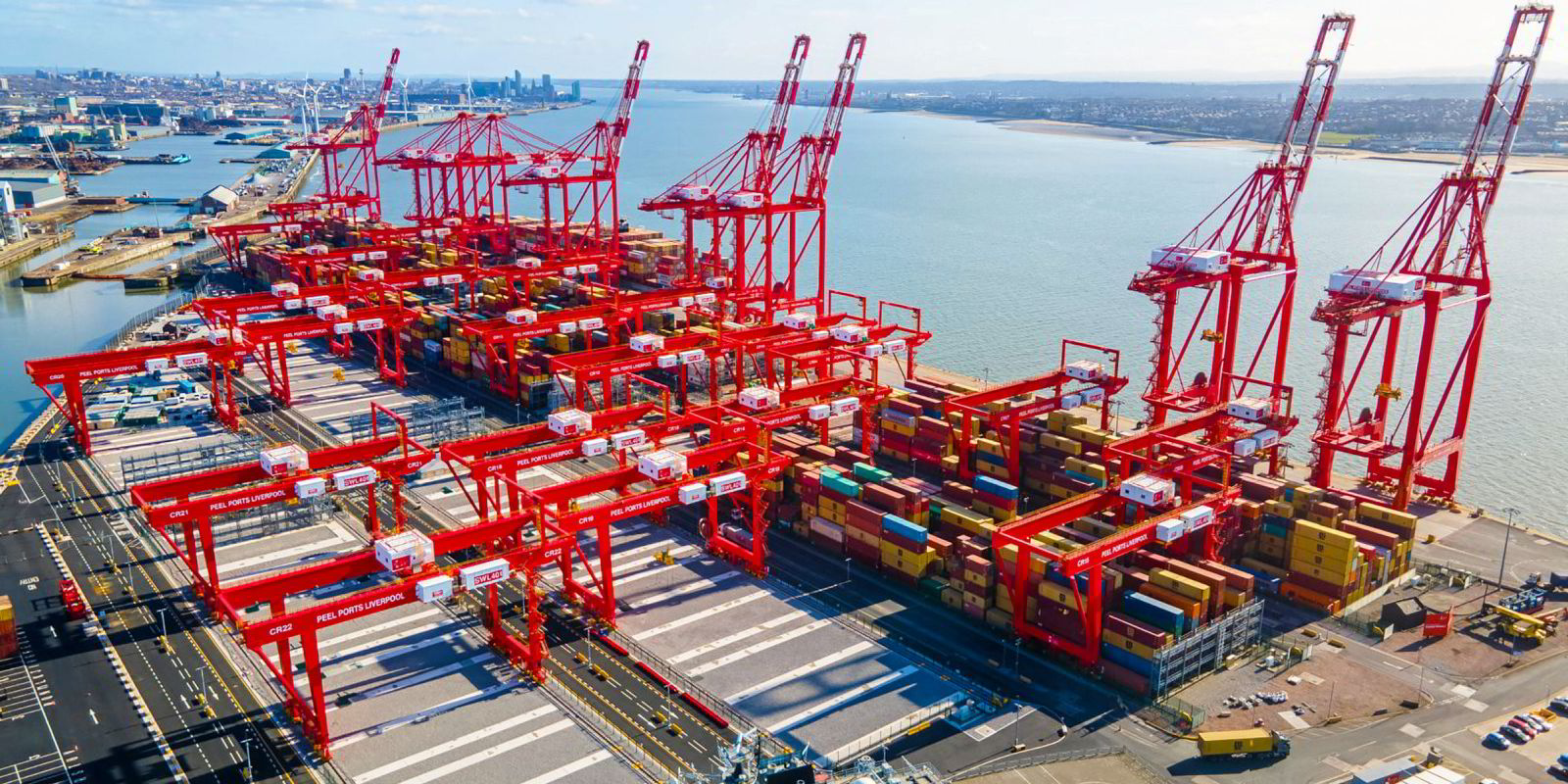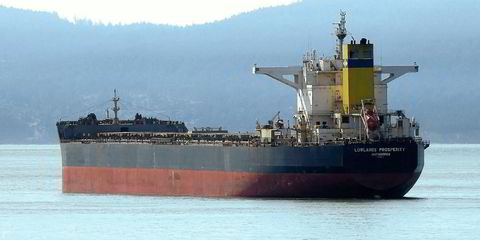Difficulties with customs documentation since the UK’s exit from the European Union have pushed some road freight onto shortsea container routes, according to a freight forwarder with expertise in Eastern Europe and Russia.
FSM Logistics started a direct container shipping service to Tallinn in Estonia in the spring to give its usual road freight customers another option for exporting to Eastern Europe and beyond after the introduction of the T1 declaration for carrying non-EU goods via the EU.
The UK-based company uses a number of feeder line container carriers for its services because it gets better customer service and transit times than from the large deepsea lines, said FSM operations manager Sigita Lazauskiene.
Director Alfred Stienen said FSM has begun using different shipping routes, sometimes going via Finland, Poland or other Baltic states, to get around transport hold-ups that have arisen for road traffic since Brexit.
One major customer switched all its shipments to Greece from road to sea containers and is only now going back to trucks, Stienen said.
It can be easier to send cargoes to Russia via Estonia, as they do not need the T1 documents when they go in containers by sea and can be trucked on from there more easily, he added.
The introduction of T1s for crossing all EU countries by road caused a “nightmare” in the first three months of this year, said Lazauskiene, as so many agents and shippers were unprepared.
Road freight prices tripled as European trucking companies avoided delays caused by the new documentation that meant they could not get vehicles back from the UK, and the need to quarantine drivers moving between the UK and Europe, she added.
Being outside the EU meant the T1 licences had to be totally correct before shipments left the UK, whereas in the past there was more flexibility to ensure the paperwork was right.
Complications
FSM, which has 30 years of experience in Russia and former Soviet states and now employs 100 staff in seven offices across the region, has benefited from the trouble other forwarding agents have had transporting shipments across the EU.

Lazauskiene said it was able, in one instance, to prevent goods carried to Poland for transshipment on to trailers into Russia from being held up for three months at a huge cost and with the prospect of fines and confiscation.
New Russian labelling has added to the complications. Required on every carton or pallet, it was applied first to shoes but will progressively be applied to other goods to deter smuggling.
Knowledge of Russian requirements to document absolutely everything is a necessity, according to Stienen, citing a shipment of thousands of cartons of cigarettes that was held up after the Russian authorities counted each one and found the number was slightly wrong on the paperwork.
“Many businesses are dissuaded from considering trade with these markets as they are portrayed as impenetrable,” said Stienen, but shippers might find new markets are opening up in the east after Brexit.
Russia is the UK’s 21st-largest trading partner, with total trade in goods and services between the countries worth more than £150bn ($209bn) per year, he said.
Stienen was involved in setting up offices in Moscow in the 1990s with one of the first UK forwarding companies to explore the market, FS Mackenzie, which was sold to Singapore Post in 2014.
FSM arose from the eastern European section of FS Mackenzie that was not sold, and has just set up a new trade and logistics consultancy service for Anglo-Russian freight.
Having served mainly retail shippers, including garments, electronics and cosmetics, the company believes other exporters and forwarders could benefit from its advice on the region.
The consultancy service will be a full support operation, Stienen said, including advice on tax, insurance, credit and customs. Multilingual staff in all its offices can work on letters of credit and certificates of origin, and even provide armed escorts for highly valuable cargoes.
Road freight is still a bigger business than sea, but routes are a question of time and cost.
Russia has customs clearance centres dotted around the country, so shipping by container to Moscow via St Petersburg can make sense, whereas it would not to Kazakhstan.
“Sometimes there are problems getting permits. We always keep all the routes open,” said Stienen.
Customs problems expected with Brexit in early 2021 were to an extent avoided due to pandemic lockdowns and transport companies not moving goods over the holiday period.
But full implementation was delayed by the UK from July this year to the beginning of 2022, and the core issues persist.
Even so, in January it was reported that the volume of exports going through UK ports to the European Union fell by 68% from the same month in 2020.
A shortage of drivers developed, with many European transport firms unwilling to send trucks to the UK, and a quarter of all importing or exporting companies reporting customs problems.
By the end of the first quarter, UK port freight statistics from the Department for Transport gave further insight.
Total freight tonnage decreased by 9% to 103.9m tonnes in the first three months, with inward unitised cargoes suffering the biggest drop of 17% to 2.2m units, while outward volumes fell by 8% to 2m units.
The problems have not gone away despite the UK government delaying implementation of the full customs systems required by Brexit, according to Agency Sector Management (ASM) chairman Peter MacSwiney.
The clearance software firm, set up by freight forwarders to develop technologies for the industry, but now an independent company, sees problems ahead.
MacSwiney told TradeWinds that only a fraction of the customs declarations that should be made were actually done over the spring.
Ports were releasing goods without full entry clearance and “generally, people do not understand the full requirements of what they will need to do in January 2022”, he said.
ASM has asked the government to bring in a transition period in the latter part of this year to ease forwarders and shippers into the use of software that they have often bought but are not using.
“Brexit is not yet done,” he said. “Your guess is as good as mine as to what will happen.”
But he fears it could still be “a car crash”.






